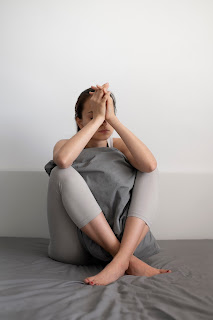
It's common to have uneasiness sporadically. However, those suffering from anxiety disorders experience excessive and persistent worry and panic. Panic attacks are those sudden strong emotions of terror.
These uncomfortable, hard-to-regulate, out-of-proportion to the real threat, and protracted sensations of worry and panic interfere with daily tasks. Children or teenagers may first have symptoms, which may then last until adulthood.
Generalized anxiety disorder, social anxiety disorder (social phobia), individual phobias, and separation anxiety disorder are a few examples of anxiety disorders.
Symptoms
- Feeling jittery, fidgety, or uptight.
- A feeling of imminent peril, terror, or disaster.
- Having a faster heartbeat.
- Fast breathing (hyperventilation)
- Sweating.
- Trembling.
- Feeling drained or feeble.
- Difficulty focusing on or thinking about anything but the current issue.
- Having digestive system (GI) issues.
- Having trouble managing worry.
- A desire to stay away from things that make you anxious.
When to go to a specialist for help?
- You believe that your excessive concern is affecting other aspects of your life, such as your career and relationships.
- Your dread, worry, or anxiety upsets you and is difficult to manage.
- You have anxiety combined with depression, difficulties with alcohol or drug use, or other mental health issues.
- You believe there may be a connection between your anxiety and a medical condition.
- Likewise, you exhibit suicidal thoughts or actions. If this is the case, get emergency help right away.
